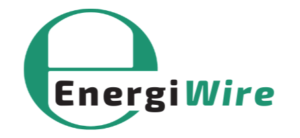INTRODUCTION:
There have been numerous and ongoing discussions and reports about DeFi’s future. Bhushan Akolkar, a Fin Tech enthusiast, shares insight into yet another idea that advocates a global DeFi definition, which could put DeFi on the correct track in the piece that follows. The IOTA Foundation and EBA proposed this one.
________________________________________________________
- IOTA Foundation proposes a unified and common definition for DeFi for aligning stakeholders and driving the industry forward.
- The European Blockchain Association highlights 7 risk categories in DeFi and suggests a regulatory framework for DeFi in Europe, aiming to balance innovation, consumer protection, and privacy in the decentralized finance sector.
The decentralized finance (DeFi) market has been evolving at a very rapid pace, however, there’s a major regulatory disarray while dealing with DeFi platforms and assets. The IOTA Foundation has recently published a new research paper offering a comprehensive sector-proposal with a unified definition of DeFi.
The rapidly evolving Web3 industry presents challenges for regulators to keep up with new concepts and innovations. Common definitions of core concepts like DeFi (Decentralized Finance) are crucial for aligning stakeholders, fostering clarity, and driving the industry forward, believes IOTA.
Thus, it adds that understanding DeFi and decentralization will expand the potential of blockchain technology and its positive impact on society. The Nakamoto coefficient measures the level of decentralization in a blockchain system, but additional factors like social dependencies and solidarities can provide a more accurate assessment.
Defining DeFi With IOTA
Defining the minimum levels of power distribution for decentralization is complex, especially in the financial system, where interactions between centralized and decentralized systems must be considered.
It transcends jurisdictional boundaries, fostering an inclusive and borderless financial ecosystem. Efforts by academia, regulators, and international associations contribute to understanding DeFi’s opportunities and risks, notes IOTA.
The European Commission’s DG FISMA annual review covers DeFi’s potential to enhance financial services in security, efficiency, and accessibility. However, it highlights the need to address operational risks and proposes a new regulatory approach.
Regulating smart contracts and adopting a favorable regulatory framework is essential to foster innovation and competitiveness. The report emphasizes the advantages of public blockchains for transparency and auditing, enabling a better understanding of risks. Proactive measures are required to tackle regulatory and policy challenges and retain innovation within Europe.
IOTA and European Blockchain Association on DeFi Regulations
The European Blockchain Association (EBA) defined DeFi as on-chain activities and services connecting buyers and sellers directly without intermediaries. They identified 7 risk categories: token composability, user pseudonymity, excessive leverage, blockchain infrastructure dependencies, governance issues, oracle risks, and cross-border operations.
The EBA paper highlights the lack of a regulatory perimeter for DeFi globally and suggests a regulatory framework for DeFi in Europe. Recommendations include legal recognition for DAOs, national API repositories, SoulBound token recognition, voluntary compliance/supervision mechanism, public observatories, and use of oracles for stability and supervision requirements. These proposals aim to balance innovation, consumer protection, and privacy in DeFi regulation.
Via this site

